|
Children in Burundi |
Children in Burundi |
Children in Burundi | Children in Burundi |
|
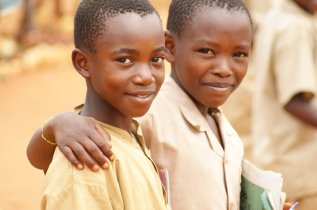 |
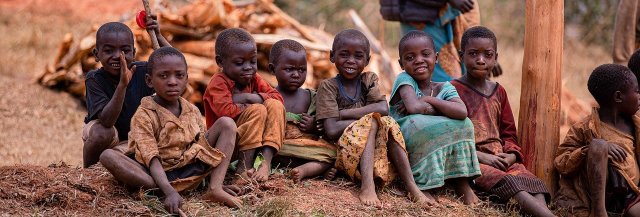
Children's diets in general consist of less than 2% meat, resulting in protein deficiency although those children living around Lake Tanganyika have fish as a major part of their food intake. As is happening across much of Africa, child mortality rates are falling in Burundi from 248.1 deaths per 1,000 live births in 1970 to 49.2 deaths per 1,000 live births in 2023 (compared with a global average in that year of 37.) Children often die from malaria, diarrhoea, and pneumonia, not least because of a lack of access to safe water and sanitation. This is a significant challenge in Burundi, with less than half the population having access to clean drinking water due to poverty, contaminated sources, inadequate infrastructure, and poor hygiene practices, leading to widespread waterborne diseases, especially in children. In 2022, there were 65,000 children in Burundi who had been orphaned by HIV/AIDS, with an overall significant decrease in the overall prevalence rate. An estimated 600,000 children in Burundi currently live without any parental care. Of these, just a few thousand live in official orphanages; the rest living on the streets or land, or as heads of child households with a small group of these children living with families other than their own. Living outside an orphanage significantly reduces these children's willingness and ability to attend school or receive appropriate health care because officially, they don't exist, and if they don't exist, no one notices or even cares if they disappear. The future for these orphans is equally bleak as they are unlikely to reintegrate into mainstream society, as while some education in Burundi is free, books and uniforms are not, and children fending for themselves simply do not have the resources to attend school in a country where there are already high levels of illiteracy and non-school engagement. Being an orphan also increases the likelihood of them having to engage in labour suited for adults only and, of course, places them at risk of exploitation with an estimated 3,000 of them living rough on the streets. UNICEF carried out a survey of some of these children and found 93% of them showed clinical signs of behavioural problems. Many of these orphans go on to become 'former street children'; a term used once the child has reached adulthood, where they may remain on the streets, often with addiction problems, unable to find work or establish normal relationships.
Following primary education, children in Burundi typically advance to secondary school, which is divided into two cycles: a lower secondary cycle of four years and an upper secondary cycle of three years. This phase aims to deepen academic knowledge and prepare students for higher education or vocational training. Enrolling in secondary school often requires passing an entrance exam, and while the government strives to expand access, resources can be more limited compared to primary education, especially in rural areas. Despite this structure, the Burundian education system faces various hurdles. Challenges include a shortage of qualified teachers, particularly in specialised subjects, as well as a lack of adequate learning materials and infrastructure. Many schools, especially those outside urban centres, operate with limited resources, which impacts the quality of education delivered. Furthermore, factors such as poverty, distance to schools, and cultural norms can sometimes hinder consistent attendance, particularly for girls. Nevertheless, the Burundian government, alongside various national and international partners, remains committed to improving access to and the quality of education for its children. Initiatives focus on teacher training, curriculum development, construction of new classrooms, and providing school feeding programs to encourage attendance. Burundi's secondary school enrollment was 46.39% in 2020, according to TheGlobalEconomy.com, the latest year for which figures are available, a significant increase from earlier years but far below the global average of 92.49%. The projects and programs above, help children in Burundi, and you can help further when you sponsor a child in Burundi. |
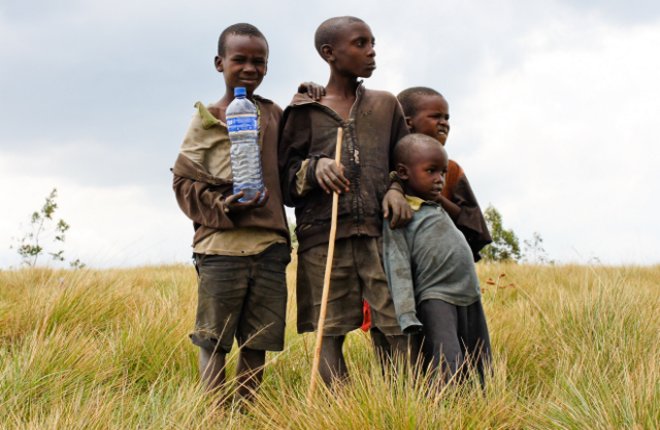

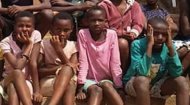

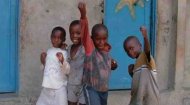
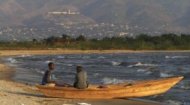
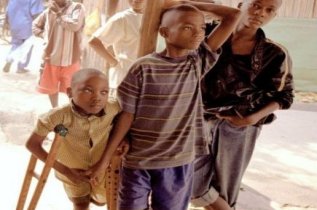 The education system for children in Burundi begins with primary school, typically lasting six years. This stage is crucial for establishing basic literacy and numeracy skills. Officially, primary education is free and compulsory, a policy designed to boost enrollment rates and ensure that every child, regardless of their family's economic status, has access to foundational learning. Instruction at this level often begins in Kirundi, the national language, before gradually incorporating French and, increasingly, English, as children progress.
The education system for children in Burundi begins with primary school, typically lasting six years. This stage is crucial for establishing basic literacy and numeracy skills. Officially, primary education is free and compulsory, a policy designed to boost enrollment rates and ensure that every child, regardless of their family's economic status, has access to foundational learning. Instruction at this level often begins in Kirundi, the national language, before gradually incorporating French and, increasingly, English, as children progress.


